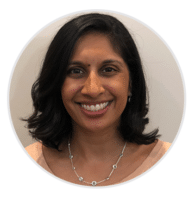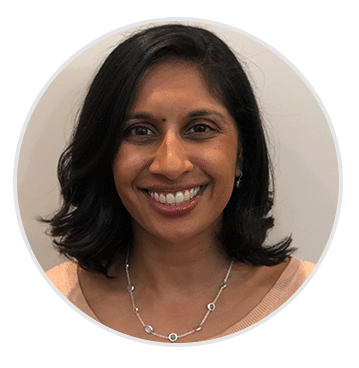Researcher Spotlight: Anita J. Kumar, MD, MSCE
Tufts Medical Center

For most Hodgkin lymphoma (HL) patients, chemotherapy is the standard treatment. However, patients often have their initial treatment plan modified (through dose adjustment or delays in treatment) due to concerns over toxicity or other factors. “There is little data on incidence and reasons for dose modification and how dose modification impacts treatment response outcomes, particularly in the community setting [a healthcare facility not part of an academic or research institution] where the majority of patients are treated,” Dr. Kumar notes. For her Career Development Award project, Dr. Kumar and her colleagues will examine patient data and interview doctors in both academic and community practice to both assess whether there is a correlation between chemotherapy modifications and poorer survival outcomes in HL, and better understand the factors behind doctors’ decisions to modify chemotherapy. “This study will demonstrate how early treatment decisions impact response outcomes in real-world HL patients, she adds.”
Dr. Kumar received her MD from Albert Einstein College of Medicine in the Bronx, New York, before residency and fellowship at the University of Pennsylvania, where she also received an MS in clinical epidemiology and biostatistics. She is currently an Assistant Professor at Tufts University School of Medicine, where she is working on a PhD in Clinical and Translational Research. While working in Tufts’ survivorship clinic, Dr. Kumar became interested in the variety of experiences among patients who were treated in the community versus an academic medical center. “This drove me to better understand how care is delivered in both academic and community-based oncology settings, and what factors drive
decisions about treatment in each of these settings,” she says. She credits her mentor, Susan Parsons, MD, with inspiring her to pursue her own research in an attempt to answer the question “How can we improve the lives of patients?”
Dr. Kumar adds that she is excited to join the community of early-career investigators supported by LRF funding. “Through
collaborative work, I have met several LRF scholars in the past twelve months, and I have realized what a special community LRF has created. I am excited to develop my work alongside other LRF grantees who have the same mission through their work!”

